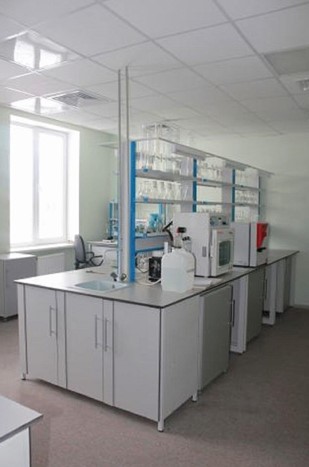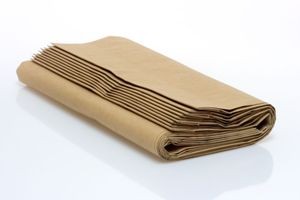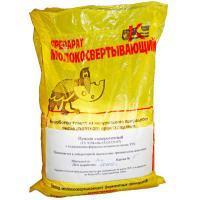Dairy truce Belarus Dairy Belarus is one of the countries with self-sufficient agricultural production. According to the Belarusian National Statistical Committee, there is a positive dynamics in the production of livestock products in the country. I
In 2016, the country produced approximately 750 kg of MILK per capita - with this indicator, among others, Belarus leads among the CIS countries, ahead of Kazakhstan, Armenia, Ukraine and RUSSIA. At the same time, 90% of all milk produced is exported to Russia. For comparison, in Russia in 2016 per capita was only 117.6 kg.
According to the Ministry of Agriculture of the Russian Federation, during the first half of 2018, Belarus supplied 2.72 million tons of milk and dairy products to Russia.
The roots of the controversy
Turbulence in economic relations between the countries manifested itself as early as 2006 - it became known that behind the Belarusian SUGAR imported to Russia, its cane counterpart from Latin America was hiding. This was followed by oil contradictions, followed by dairy ones: Gennady Onishchenko, the chief sanitary DOCTOR of Russia, announced in 2009 the need to ban the import of a number of dairy products into the country - according to him, Belarusian products were produced in violation of the requirements of the relevant technical regulations.
Earlier, Sergei Dankvert accused Belarus of dishonesty. According to RBC, a public conflict between the Belarusian president and the HEAD of ROSSELKHOZNADZORSergei Dankvert began at the end of 2016. In an interview with RBC, a Russian official said that Belarusian suppliers of products, the quality of which Dankwert’s department regularly questions, behave “in bad faith” and “want to take advantage of the situation when the Russian market was closed for supplies from the EU, from Ukraine.”
In response , ALEXANDER LUKASHENKO said that the Rosselkhoznadzor was causing damage to Belarus by preventing the import of Belarusian food to Russia, and the Rosselkhoznadzor reflected this situation by stopping the supply of beef and beef offal from the MINSK region.
In February of this year, the Rosselkhoznadzor introduced new restrictions on the goods of Belarusian manufacturers due to the detection of harmful and prohibited substances in them. Under the ban turned out to be drymilk and also cream. The Belarusian side did not agree with the accusation.
About balances
On September 18, the Minister of Agriculture of Russia Dmitry Patrushev held talks with the Minister of Agriculture and Food of the Republic of Belarus Leonid Zaits.
According to the Ministry of Agriculture, during the meeting, the head of the department stressed that at present Belarus is the most important trading partner of our country and the largest supplier to the Russian market in a number of areas.
In November 2018, the Ministries of Agriculture of the Russian Federation and Belarus agreed to sign the forecast balance sheets of the Union State for 2019 for milk and dairy products, MEAT and meat products. According to the source of the publication, the milk balances have already been agreed upon. During the fifth forum of the regions of Belarus and Russia, which was held on October 10-12 in Mogilev, the parties signed balance sheets for mutual food supplies for 2019 for $3 billion.
According to the Ministry of Agriculture of the Russian Federation, in January-July 2018, trade between the countries increased by 2.7% to $2.9 billion. At the same time, Russian exports for the reporting period increased by 20.5% to $0.7 billion.
– For the first time, we have pre-signed balance sheets for the coming 2019. Next year's balance sheets are drawn up on a monthly basis, they will be executed. They differ from the level of 2018, according to different nomenclature in different ways. But in general - a little less, - said Dmitry Patrushev.
Opinions
At the same time Rosselkhoznadzor opened the market for a number of dairy companies. It is assumed that the signing of the balance sheets will help reduce the supply of raw milk from Belarus, and the import of finished dairy products to Russia will increase. We asked the experts.
- We are still disentangling the results of when Russian producers once again found themselves under pressure due to lower purchase prices for raw milk without any reason. For 11 months now, milk producers in the Russian Federation have been forced to ship milk at unprofitable prices, and only now, very slowly, purchase prices have begun to recover. And all this happened only because a huge amount of powdered milk and butter was brought to our country through Belarus at dumping prices. Processors purchased it, stockpiled it and lowered purchase prices. If we ensure stability in the country within 2-3 years, create production capacities, then the dairy industry will become attractive for investment. This is a competent policy - it will relieve social tension: new jobs will be created, will be worthy of a salary. To do this, the State must ensure strict control over dairy products coming from abroad and maintain the established monthly import quotas. From Belarus, only the missing volumes can come, and at prices not lower than the cost of production in our country. At the same time, it is necessary to use more widely the developed method for determining milk powder in finished natural products and monitor the quality of those products that are imported from abroad, completely eliminate the import of counterfeit products and surrogates.
The Russian market is strategically important to Belarus. As long as there is a seasonal shortage of milk in Russia in autumn and winter, our Belarusian colleagues can increase shipments of their products, but this must be done very carefully and balancedly, without breaking the existing market. We have been saying for a long time that our shelves are open for high-quality finished products from Belarus, but you have to be very careful with powdered milk, butter and cheeses. It is necessary to strictly observe the balances both in terms of tonnage and supplies, taking into account the seasons, - Airat Khairullin, Deputy Chairman of the State Duma Committee on Agrarian Issues
- Products from Belarus on the shelves give the domestic manufacturer an incentive to compete. But in fact, the conditions are not quite equal, in Belarus raw milk is much cheaper in cost than in central Russia, so the artificial advantage is not on our side. Besides, fake is still enough. Despite the gradual reduction in the presence of such products on the shelves, the severity of the problem does not decrease. The dairy market needs a distinction in structure between dairy and non-dairy based products. Such a measure would greatly facilitate the life of processors. The composition of the market in terms of the scale of players is quite diverse, I would like the number of regular players to prevail. Phantoms that appear and disappear complicate the activities of enterprises that strive for transparency, opinedmarket participant who wished to remain anonymous.
- Belarus is a source of exchange products, but not always of high quality: a lot of counterfeit goods produced in Ukraine are imported. This factor affects the reduction in the purchase price of milk. In addition, control over raw materials is higher, and in finished products it is much easier to miss “non-format” - we are talking about malicious falsification, that is, not just replacing milk fat with non-dairy within 50%, but adding harmful substances to the composition. Such products flow through Belarus, despite the closure of borders and the identification of violations. If the balances are taken into account, then only by the Belarusian side, but we do not have our own clear statistics. It is impossible to establish the exact volumes of imported products, - Alexander Nikitin, member of the board of directors of Alantal
- I have a positive attitude towards signing balance sheets. It is profitable for us to supply not raw materials, but finished products. All the processed raw materials that we have load our own capacities, and there is an excess of those raw materials in the form of powdered milk and whey where we can sell them - the markets of Southeast Asia and the Persian Gulf. In this direction, we ship quite a lot and plan to increase volumes. This approach is embedded in trade balances, this is a coordinated policy without objections from our side and from the Russian Federation, - Alexei Bogdanov, Head of the Main Department of Foreign Economic Activity of the Ministry of Agriculture and Food of the Republic of Belarus
- We are against double standards, for market regulation mechanisms. Either Russiaand Belarus have open borders for both raw milk and finished products, or both are strictly controlled. The reduction in the supply of raw milk and the growth in the supply of finished products makes the life of processors even more difficult, especially in our region, where there is a shortage of raw milk. By limiting the import of dairy raw materials to Russia, we create an excess of such raw materials in Belarus, making Belarusian dairy products even more competitive compared to Russian ones, - Dmitry Pinchukov, Chairman of the Board of the Galaktika group of companies.
As the experience of any regulation shows, clear rules are important in it. Analysts emphasize that the dairy industry of the Russian Federation should not see only external enemies, at the same time, the correct adjustment of the food balances of the Union State contributes to a softer picture of the market.



























































